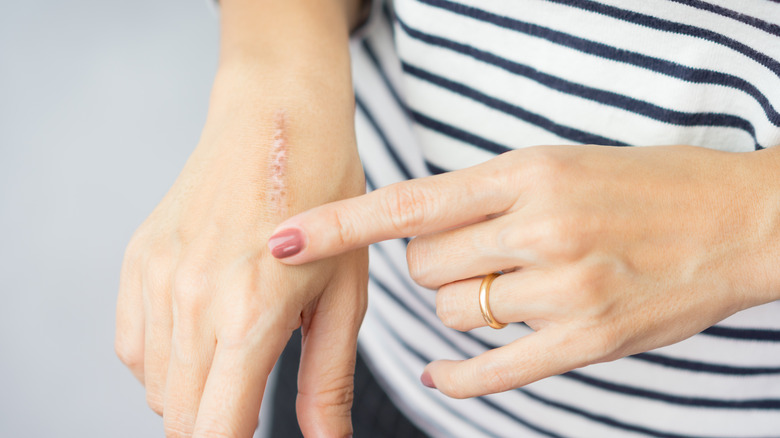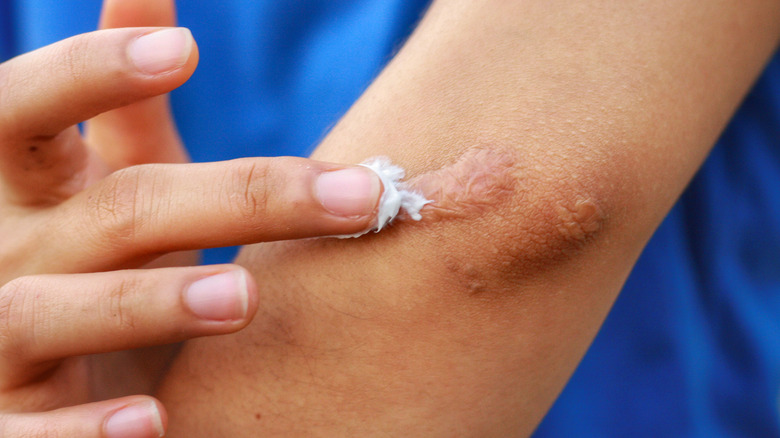What It Really Means When Your Scar Itches
Scars are a part of the body's natural healing process. They form in response to an injury to help repair cut or damaged skin. According to Cleveland Clinic, scar tissue is made of collagen and grows around a wound or laceration to help fill in the gaps between your skin and prevent infection. Whether your scar is the result of an accident, operation, or even a burn, most scars fade away or become less noticeable over time.
However, this depends on the severity of the injury, the size and location of the scar, and genetics. For people with lighter skin tones, scars tend to appear pink or red at first and fade from light pink to slightly lighter or darker than the person's skin tone, while people with darker skin tones tend to have scars that look darker than the tone of the person's skin. Regardless of your skin tone, however, it's not unusual for scars to become tender and itchy during the healing process.
How to treat an itchy scar
According to Healthline, scars can become itchy for several reasons. When it comes to new scars, injuries that damage the nerve endings in the skin can cause scar tissue to become sensitive and itchy while the skin is still healing. For scars that have already healed and are more than two years old, however, dry skin and tightness or stretching of the skin around the scar can sometimes cause itchiness, as well.
No matter the cause, itchy scars can be treated with various at-home remedies. For instance, applying creams and moisturizing oils to the affected area can help hydrate your skin and help soothe any itchiness caused by your scar (per Healthline). You can also use bandages to help cover and put pressure on your scar. In addition, you can massage the area every day to help soften the scar and prevent the skin around it from becoming too tight. If this doesn't work, however, you may require a more invasive treatment, like intralesional corticosteroid injections, which can help reduce inflammation.


